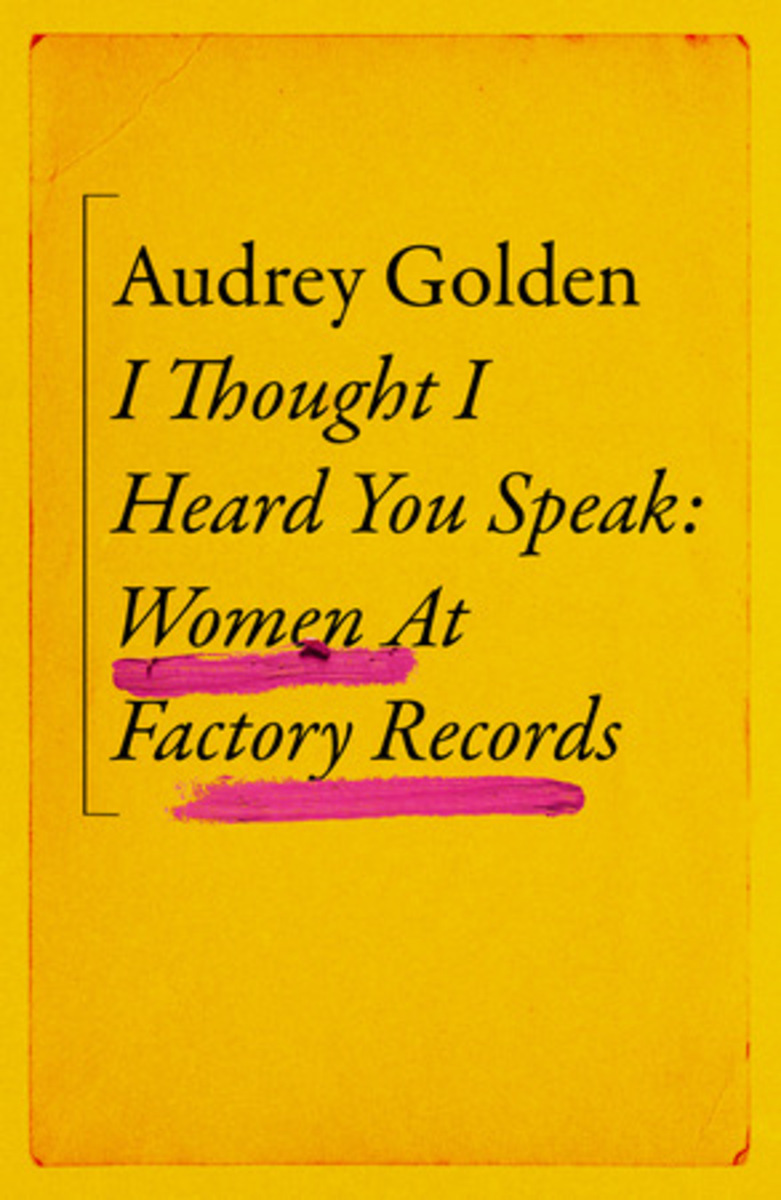
I Thought I Heard You Speak: Women at Factory Records
Audrey Golden
White Rabbit Books
You may know the basic outline of Factory Records. It’s a fascinating story of the rise and demise of the Manchester music scene, full of larger-than-life characters like TV presenter and Factory founder Tony Wilson, Joy Division singer Ian Curtis, and the Happy Mondays’ wildcard of a singer, Shaun Ryder. With these flamboyant male characters, it’s not hard to see how they steal the spotlight in books and movies about the company.
The 2002 film about Factory Records, 24 Hour Party People, depicts a boys’ club doing crazy things, taking big chances, and being wildly successful… until they aren’t. Nicki Kefalas, Factory’s public relations person for radio and TV, sums up the public face of the label, saying, “The women who were in the office might not have been doing the ‘front-line’ stuff of going on tour or being the figureheads for the label, but they were really doing the critical work.” Golden rounds out the Factory story by giving voice to the numerous women who were vital to the label’s success.

I Thought I Heard You Speak is an oral history told by the women who held things together, doing the mundane but thankless job of keeping the business running on a day-to-day basis. How much you get out of I Thought I Heard You Speak will depend largely on how big a fan you were of the Manchester music scene and how well you know the standard version of Factory lore. 24 Hour Party People gives a slick highlight reel of the road from post punk, to rave culture, to bankruptcy, but Audrey Golden gives you all the behind-the-scenes wrangling that made those highlights possible.
The book is arranged thematically, rather than chronologically, so there is overlap between the tales of, for example, the inner workings of the Factory office and New Order’s rise to fame. The chapters, and the book overall, have the feeling of sitting in on someone’s 20th class reunion. The stories told by the women who were there meld together like a conversation. At times, I felt like the significant other brought to the reunion, politely smiling at stories they can’t quite put into context because they were not there.
The book is full of interesting, often funny stories of women pulling together to make the impossible happen. As I read I Thought I Heard You Speak, it occurred to me that the contributions of women and minorities are often overlooked or downplayed because they’re doing the essential work that keeps the wheels turning.
An alternate history of the Factory story doesn’t erase the contributions of those larger-than-life male attention grabbers. It provides a different perspective to the story. After all, someone had to herd the cats the were the Happy Mondays, and that person was often Jayne Houghton.












